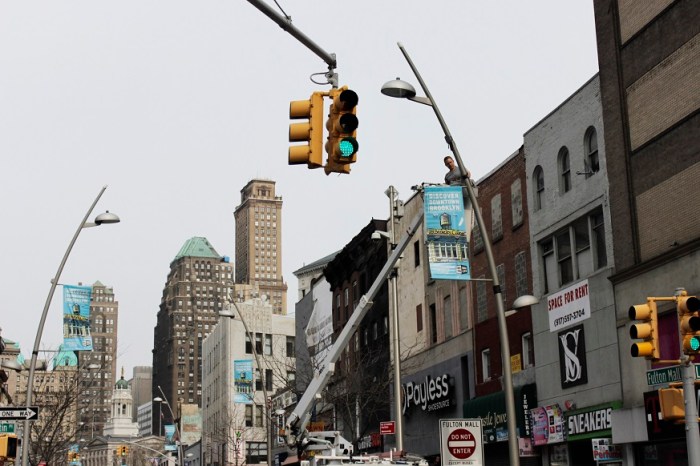Georges Clement didn’t think he would end up working in technology. The 25-year-old Bronx native opted for sociology and African studies over computer science when he went to college.
As a product manager, however, he makes up one half of a team that won $25,000 from to further develop an app designed to help New Yorkers maintain and improve their quality of life.
RELATED: Local innovators aim for access to city contracts through new firm Along with developer Dan Kass, the two have been working to launch JustFix.nyc, a web-based mobile app created to empower renters vulnerable to negligent landlords and in need of repairs to their homes by walking them through proper documentation and filing procedures. The app is a part of a growing movement in New York City to flip the script on the relationship between the private tech sector and local government, and one boosted by a recent report naming the city as an international leader in encouraging tech-powered entrepreneurship. The City Initiatives for Technology, Innovation and Entrepreneurship,or CITIE,report gave New York City the top spot among 40 cities worldwide considered as hubs for disruption and ingenuity. New York — with its estimated 117,000 jobs according to numbers crunched by local think tank the Center for an Urban Future — landed ahead of London, Helsinki, Barcelona and Amsterdam in most of the measures. Those variables included the city’s public access to big data, investment in tech skills and promotion of the local tech business community. RELATED: NYC Mesh works to replace Time Warner Cable one router at a time Clement credited New York’s spirit of diversity as playing a vital role in making sure he and others like him feel like they have a part in city’s booming tech sector and its engagement with local communities. “It’s important that it’s not just the 1 percent from Silicon Valley that’s developing products,” he said. “And that’s something that’s really inspired our work — building products to serve those who have typically been undeserved by technology.” JustFix.nyc was one of seven projects to win the 2015 NYC BigApps competition earlier this month, and hopes to launch to residents across the five boroughs after some early beta testing with residents and local legal resources in neighborhoods including Brownsville, Red Hook, Crown Heights and Harlem. It’s because of the New York City government’s willingness to share data and with the cooperation of community organizations, Clement said, that projects like JustFix.nyc can come about. RELATED: Tapping into the Bronx’s tech talent
“It really just makes it easier in order to build products that actually serve the residents and move the needle to make public services more accessible,” he said.
Not all tech companies in New York are built alike. Embattled startups like Airbnb and Uber have butted heads with City Hall over local that the companies don’t face in other municipalities around the world, such as taxi or housing regulations. “But lots of cities are grappling with this problem,” said Maria Torres-Springer, president of the New York City Economic Development Corporation. “We’re all trying to make sure we can strike the right balance that between public safety and responsible government while also promoting innovation and disruption.” Torres-Springer credited the Bloomberg administration for its part in making New York City attractive for the tech by asking what the city could do for the industry.
RELATED: NYC foster kids get tech crash course to bridge digital divide “We’ve almost flipped the question to ask what can tech do for New York City,” she said.
While encouraging civically minded tech startups and projects, Torres-Springer said the city was still as committed to developing home-grown talent through education initiatives — including required computer science classes for public school students by 2025 — as it is to drawing business to New York with incentives. “It’s really an array of different programs and investments we are making to continue building this tech ecosystem,” she said.
And while those initiatives will continue to drive consumer-driven companies hoping to capitalize on an interconnected New York City economy, Clement said there’s plenty of room left for civic-minded technology. “We’re in the early stages of this being a much bigger movement,” he said.


















